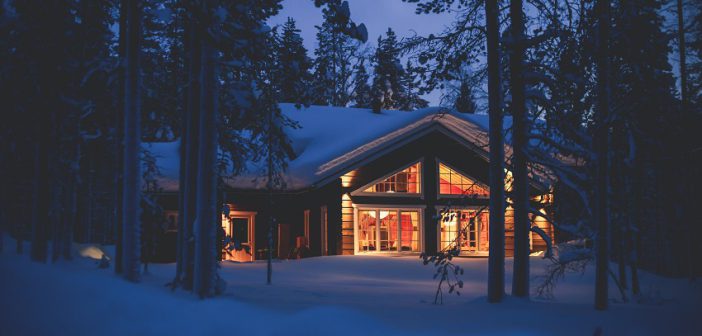By: Laura Leavitt
When serious cold hits in Madison, Wisconsin, it’s too late to protect the essential parts of your home that are vulnerable to a deep freeze. Instead, it’s best to prepare ahead and check off all the critical elements of winterization. For your particular home, it’s worth talking to professionals when they are servicing systems like HVAC or features like the roof and ensuring that they don’t have house-specific advice for you. In general, however, this list of tips can help you get started, especially if you want to get the best price for your home.
Address window draftiness and heat loss
Even a home that has been snug in the past experiences wear and tear, and windows are a significant source of heat loss during the winter, driving your bills up and making your home less pleasant. First, address whether your windows need better seals and weatherstripping as a matter of repair – one of the first cold days can tell you where jets of cold air are making it into the home. Then, consider using insulated curtains or plastic window coverings to minimize heat loss due to the windows’ nature. Long-term, better-insulated multi-pane windows can be an excellent investment to retain heat better.
Caulk and weatherstrip doors
Doors are also a source of draftiness, so do a thorough evaluation of whether better caulking and new weatherstripping would make them seal better and lose less heat when they are shut. Pay attention to the doors you use sparingly; you never know where you might find a significant source of draftiness. If you want to sell your home with minimal repairs while under contract, keep these things updated yearly.
Clean gutters and inspect for past winter damage
Ice in your gutters can expand and break portions of your drainage system while also causing water damage to your roof and other parts of your home, so the channels need to be clear before the freezing temperatures arrive. Evaluate whether there are areas that need to be repaired due to ice damage in past years – consider doing a thorough inspection during rainfall to see how water is coursing through your system.
Protect water pipes
With truly jaw-dropping low temperatures comes the threat of burst pipes. Evaluate your home, potentially with a plumber at your side, to see which lines are closest to external walls where they’d be likely to encounter freezing temperatures. Insulation or a heat source can prevent freezing, and your plumber can also guide you on when it makes sense to leave faucets dripping slowly to keep pipes safe.
Inspect and winterize HVAC
You want your furnace in working order before it is in full rotation, so have a furnace inspection/maintenance session in the fall. You can also request that an air conditioner professional help you protect your air conditioning unit by winterizing it and protecting it from cold temperatures.
Inspect chimneys for fireplaces that will be in use
If you use your fireplace in the winter, you’ll want to ensure that no damage has occurred to the fireplace or chimney in the past year. Getting someone to inspect it yearly for any potential damage can help you retain the value of your home for a future sale and keep you safe when you’re using fire in your home.





When it comes to furnace maintenance, make sure it’s clean. It’s vital to replace the air filter every few months or sooner. This will keep your system running smoothly and help you save money on heating bills because your HVAC doesn’t have to work as hard to keep the house warm.
Thank you for mentioning this! It’s also important to keep the heating system itself clean and free of dust. Dust is highly flammable, and it only takes a small spark to set this off.
A piece of advice: for wall furnaces, clean inside the burner compartments. Clean this area at least once a month during winter to avoid lint buildup. For natural gas furnaces, the flame should burn blue. Orange or yellow flames may mean your furnace needs cleaning or adjusting by a professional.
Hi there! If you have a swimming pool, preparing it for winter is another home project you should take advantage of. Neglecting this can lead to problems such as algae, a chemical imbalance of water, and broken equipment.
I’m leaving a guide to closing the pool here in case you might need it: https://www.discountsaltpool.com/guide-maintaining-saltwater-pool-winter.
Thank you for sharing this!
When preparing your heating system for winter, remember to check these things: https://www.gervaismechanical.com/34013-2/.
I believe it will be fascinating for everyone to know that in order to work well, you must unwind and enjoy yourself, which is why I am writing this essay. If you are interested, gratis porno would be a perfect spot to accomplish it because it enables you to view your preferred films without charge. I want to emphasize how great it is for soothing your head.
Thanks for the helpful advice! I just want to add a few words about home insulation. If you get your hot water from a hot water storage tank, you also need to insulate it. Insulation with an R-value of at least 24 is preferable. This could reduce heat loss by up to 45% and save you around 10% in water heating costs.
Yes, pipes are very vulnerable in winter. Here is a full guide on how to keep them safe during winter: https://escoutah.com/keeping-your-pipes-safe-during-winter/.
We also should remember (but most of us forget) to clean air ducts in our homes. This can help your HVAC system to work efficiently and smoothly.
As ducts and vents become clogged, less air gets through. That means you have to crank up your heating system in order to make your house comfortable. And of course, that leads to higher heating bills.
Yes, door caulking and weatherstripping can make a big difference. However, if your door is old and low-quality, it’s better to replace it with a more energy-efficient option, like a steel door.
If you live in an area with extreme temperatures in summer and winter, consider thermally broken steel doors, which use two layers of steel separated by insulation to reduce thermal conductivity, keeping your home at the perfect temperature year-round.